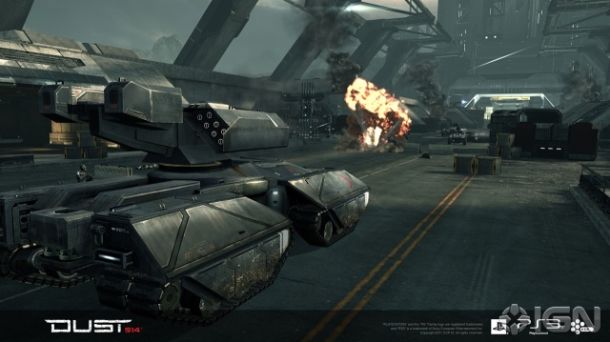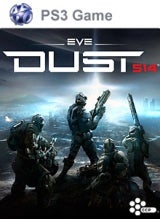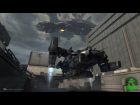But here's what doesn't happen: Feeling satisfied that you've spent half an hour securing a crucial planetary installation that supports a distant friend who pilots a fearsome battle cruiser, a pilot who then happily escorts you and your fellow mercenaries to the next planet in your expanding empire in need of grunt labor. Coordinating that in-game, or perhaps over email or Skype -- however you keep in touch with allies. Needing to, because the band of thugs that tried to infiltrate your planet now carries a vendetta against your entire corporation, in all likelihood.
The typical shooter, instead, ends at the kill/death ratio. Maybe you're part of a clan with some abstract rep to uphold; maybe you've earned some character upgrades that you can deploy next time to kill better and faster. But your effective relationship with the game, and with the people you were shooting at and shooting with, ends with the individual match. Your real life continues in the real world.

But the universe of EVE Online persists without your input, and so will the planets and infrastructure of the first-person shooter Dust 514, which are the same planets and installations in the same universe as CCP's infamous and acclaimed massively multiplayer online role-playing game. Dust 514, a PlayStation 3 exclusive due next summer, is an attempt to open the universe of New Eden to a new community of gamers who are either too busy or too uninterested to untangle the intricacies of the spacefaring MMO on PC or Mac. It allows PS3 owners to collaborate, or fight, with EVE players as mercenaries who can journey to, enter, and ultimately gain sovereignty over the planets that currently house no conflict between player corporations. As we know, EVE Online's best stories are precisely about political conflict, from protracted factional battles to long-term corporate espionage to outright betrayal, with dramatic and immediate effects on the game's free market. If CCP's most radical EVE expansion to date can attract a loyal player base, then it will rewrite expectations of first-person shooters.
"What am I fighting for? Am I fighting to level up, to unlock cool stuff? To climb a leaderboard? All of these things are fun," says Tom Farrer, a producer at CCP. "As developers, we wanted to make something -- but also as players, we wanted to play something -- where the success and enjoyment you're having are about more than these abstract reward mechanics."
Farrer balks at my suggestion that the standard online deathmatch or Capture the Flag game is meaningless in the bigger picture, that half an hour or three hours of mutual running and strafing in circles -- and I've done my share, from Doom II to Left 4 Dead -- might ultimately leave you feeling less than you put in. This activity is a tradition that Dust 514 pointedly builds upon and expands. It's already clear that it operates on levels beyond the immediacy of reflexes and ground superiority.

Farrer describes a process of starting small and naturally expanding outward, both in the game's universe and in reality. Dust 514 players begin in high-security space, or Highsec, areas of New Eden policed by a non-player corporation that punishes aggressive player-versus-player acts such as piracy. Here, players can learn the ropes, begin to train skills, and gain new equipment by participating in ongoing battles waged among these corporations. If they want to stay in Highsec and play Dust 514 like a far-future Battlefield, they may. But Highsec is a networking event in more ways than one; players may grow ambitious and begin to wonder about the spaces beyond the computer-generated warfare. They begin to talk to the mercenaries they're playing alongside, and get organized, forming a corporation to pool resources in order to hire a war barge that will take them into low-security space -- and to a planet ripe for the taking.
"You've got to fight; you've got to generate ISK," Farrer says, referring to the in-game currency. "And you've got to build [planetary structures that provide defensive and economic benefits], and you do it with your friends and now you're invested in this thing. If somebody comes along and tries to take it, it matters. If you succeed in fighting them off, you're going to feel extremely satisfied. It's about creating a genuine feeling, a feeling that transcends the fun of shooting that next guy in the face and getting a point."





